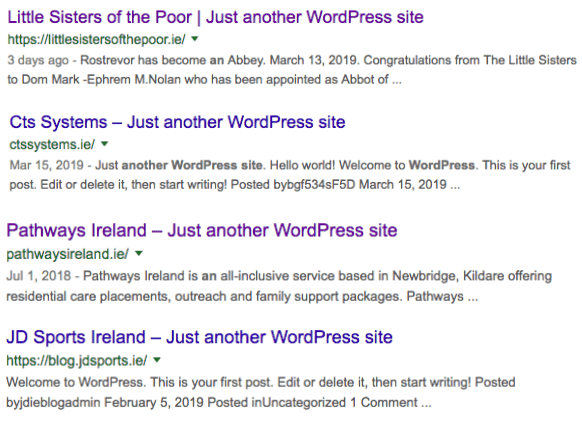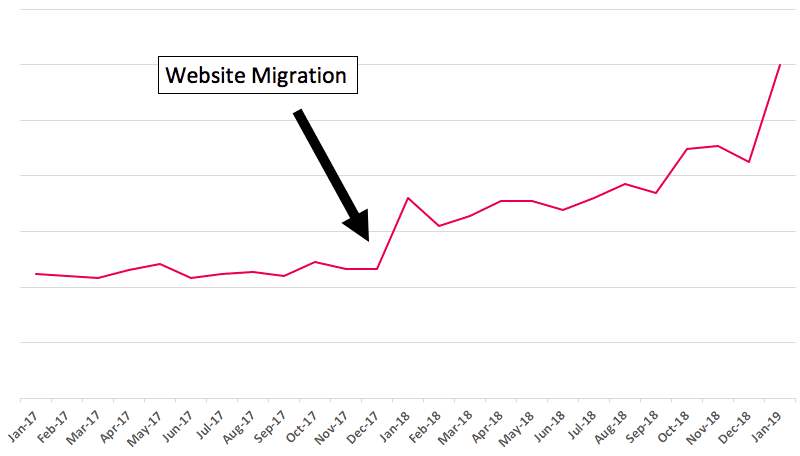Enough is Enough: SEO is Not Optional
“We’ll go with the website but we can’t afford the SEO right now…”
I still hear this. Often. And realistically, if you can’t afford to invest in SEO, you can’t afford a website.
This post could have been written ten years ago, but sadly, for some, things haven’t changed so it still needs to be written today.

What’s happening far too often is that businesses ultimately have a website that is not a sales tool. And it’s because they think SEO is not important, that it’s optional, or that they can invest modestly and still expect to see results. Hell, some even think it’s a scam. And in a way, you can’t blame them if you look at how some so-called ‘professionals’ behave.
SEO drives visibility amongst those who have potentially not heard about your brand. Without it, your website is mostly getting traffic from those who already have.
Without an ongoing investment in Search Engine Optimisation, you might as well just walk out on to the street and show your new website to strangers on a laptop. Because that’s probably the only way they’ll ever see it. And they might be the only people to see it.
Your First Website
So, there are two scenarios here. First is that you’re a new brand, perhaps a start-up. You need your first website. You get a few quotes from a few agencies or developers. And hey, you’re a start-up so you go with the cheapest one. Seems like a reasonable thing to do, right?
Well no, it’s really not. It’s wrong on so many levels.
You need to ensure that this website is being built with SEO in mind. They might tell you that your website will be “SEO friendly”, but actually there’s no such thing because you cannot launch a website and expect it to eventually rank highly on Google unless there has been a strategic approach to SEO and content.
A strategic approach to SEO include: getting to know your business and audiences, keyword research, competitor research, a content gap analysis, backed up by a content strategy and calendar… and it should be informed by research too.
And by research, we’re not talking about clipboards on Grafton Street (in Dublin) here… this is surveys of your actual audiences, focus groups and so much more.
From this information, you can then better understand what your potential audiences want, certainly content-wise.
And of course, there’s that little important part of finding out who they are and what makes them tick, where they engage online and how. This ALL informs SEO.
So if you are launching your first website, and none of the above has been discussed, then no, it is not “SEO-friendly” at all.
A New Website
Many websites will go through a complete overhaul, re-design or re-development. They will change their URLs and structure. If you do not factor in SEO at this stage, then you WILL lose traffic. There is no question of that.
So this is where I come back to SEO not being optional…
If you are requesting quotes from agencies for a new website, and they have returned a quote without a recommended investment for SEO – then tear it up, or delete the e-mail.
If you are disqualifying agencies or developers because SEO is included but you think it’s too expensive, then stop and think. Don’t do that. It’s essential. Without it, you WILL lose traffic and revenue.
If you are migrating to a new website, then allow us to explain WHY it’s so important. But do remember that this is just top-line stuff. There’s a lot more to it…
If you are changing your URLs, even slightly, then your previous ones all become broken pages. This also means that any website that previously linked to you, and was likely helping your rankings, now points to a broken page.
Also, If URLs change then your referral traffic that has historically sent leads or revenue will also be pointing to broken pages. That’s revenue lost.
This is the ideal time to revise your core SEO elements, so page titles, descriptions, rich snippets, for example. However, if SEO is not included then do not expect this work to be done.
Furthermore, if it’s not in scope then you might end up with some peculiar-looking search results. As an agency, we would never allow small things like this to happen, but some might…

Website migration is also the ideal time to begin introducing new research-based content. Some of this will come from your overall research initiatives and even usability testing, but then can also be guided by keyword research specific to the audiences we have identified.
So, this can be done right. And a website migration should be seen as a way to correct those past wrongs, and actually, increase your traffic as opposed to just protect what you had before.
We built a new website for a client at the end of 2017. Look at the increase in SEO Users to the website since then.

It’s not bad, eh?
It’s good to note that the increases above were not just down to SEO. It was a perfect mix of all digital disciplines coming together – research, content, architecture, design, build… and SEO. It was the result of a brand who know of the importance of SEO as a part of an entirely new website and migration.
So, is SEO optional? No.
Can it ever be? No.
Without it, a brand new website will hardly ever be found. Without it, a new website migration can, and likely will, have catastrophic results.
With it, you should see some great results and that’s all that we’ve seen on our watch.
Get in touch with Friday if you’re planning a new user experience or if you want to improve your SEO. You’d be in safe hands.


